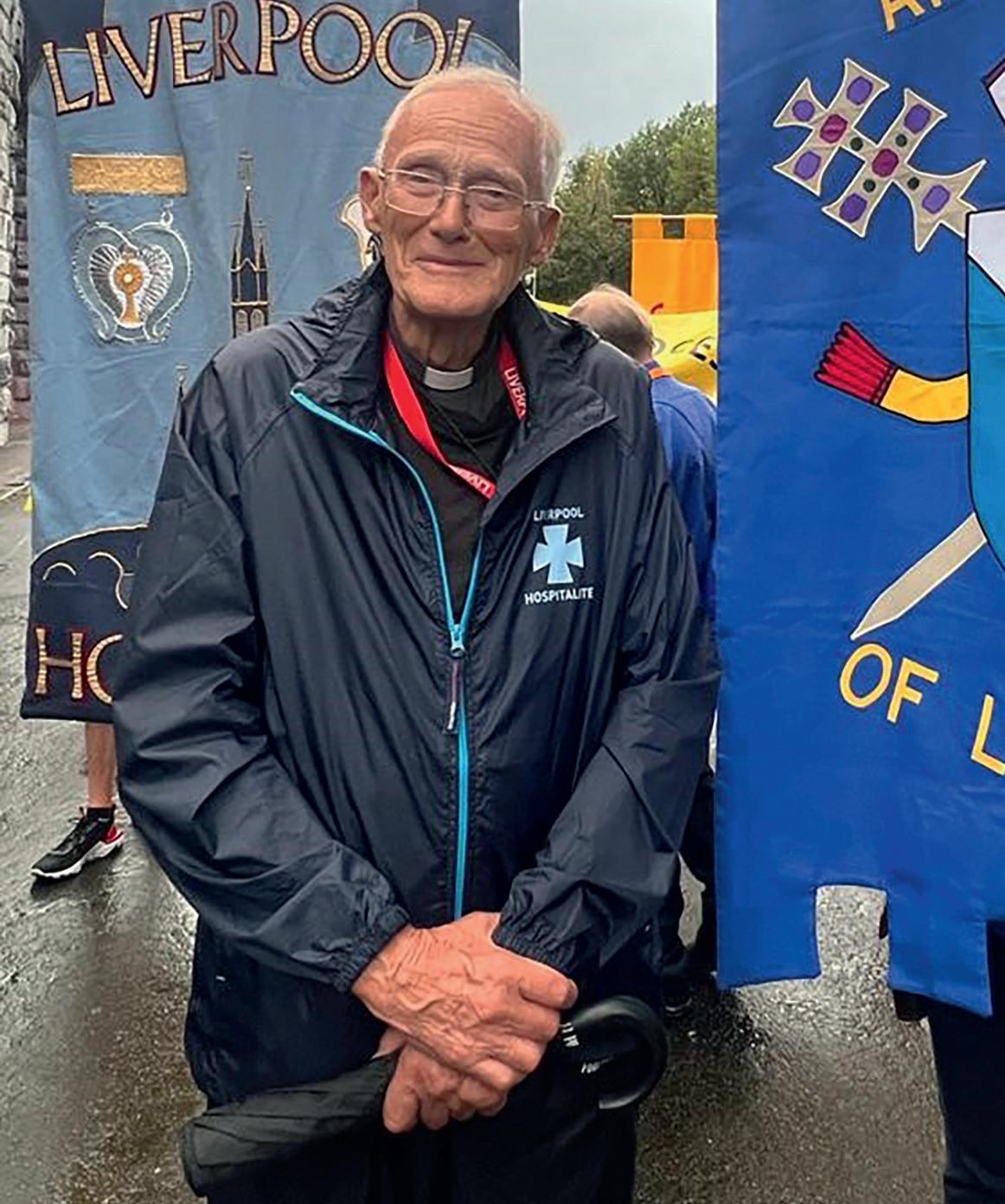
3 minute read
The Lourdes stalwart Monsignor John Butchard
by Simon Hart
For a quarter-century before his retirement as a priest, Monsignor John Butchard was director of the Liverpool Archdiocesan Pilgrimage to Lourdes. Even today it is impossible to imagine a pilgrimage without his gently smiling presence. As he affirms: ‘It has been the centre of all my priestly life. I’ve not missed a year since 1968.
Advertisement
‘Every year of my priesthood has been divided into before Lourdes and after Lourdes. I’ve never had a holiday in July or early August as it’d conflict with going to Lourdes. It has just been my life.’
An archdiocesan priest since 1966, Mgr John first visited the shrine on a school pilgrimage from St Edward’s College in 1954. ‘I was just bowled over by it,’ he says. He returned in 1968 with his mother, Joan, a one-time Catholic Pic columnist who travelled as an assisted pilgrim. ‘She stayed in the Saint-Frai hospital. It meant a lot to both of us.’
From his mother, he gained an appreciation of the international dimension of Lourdes. ‘Whenever she went, she used to get to know people from all over Europe and would haul me in to talk to them! I love the International Mass. I love the Torchlight Procession. I love the afternoon procession of the Blessed Sacrament. They’re common to all people in Lourdes at any one time and really very prayerfully managed.
‘The one which has most emotion is the Torchlight Procession. The sight of the Rosary Square filled with people holding lights as the daylight goes away, singing and praying, I find very moving.’
Mgr John’s knowledge of Lourdes guarantees a flow of fascinating details. As he points out, in 1954, the year of his first visit, every service was in Latin. By 1968, Lourdes was adjusting to the fact that ‘people wanted to have their services in their own language and that was a terrific change for them.
‘There was no planning in advance. You found out where Mass would be the following day, if you wanted it in English. After lunch each day, the pilgrimage directors went and had a cattle market for the time and place. Now you know almost 12 months in advance’
The care of the sick – or assisted pilgrims, as they are called today – has evolved too. ‘The minimal information we had on people’s medical conditions would frighten the medical team now. At the same time, pilgrims would never think of claiming against pilgrimage authorities for lack of due care or attention whereas it is not unknown now.’
For many years, he explains, the doctors and nurses who supported the pilgrimage – providing much-loved stalwarts such as the late Sister Kathleen Duffy – came from the Providence Hospital in St Helens, a place established by the Poor Servants of the Mother of God.
‘The way in which pilgrimages are managed by health services is changing all the time,’ he continues. ‘More and more people make their way to Lourdes and stay in hotels where, with the help of family and friends, they can cope in a way they couldn’t have done when I first started going when they needed the support of Hospitalite and more specialised services.’
The flow of memories goes on. One minute he is recalling the old St-Frai, crowded but ever-welcoming. Yet today, as he notes, assisted pilgrims can gather to eat in a dining room, rather than in their beds.
And he smiles at the thought of the old pilgrimage train with its ‘minimalist’ approach to health and safety typified by the gas boilers in the guards van which provided hot tea to a thirsty queue.
As a new priest, Mgr John had served at St Luke’s, Whiston, where a spell as chaplain to the local hospital ‘gave me an exposure to the sick’. From 1968-90 he was at Upholland College, first working with the junior seminarians before 16 years as bursar. He was later parish priest at St Joseph’s, Penketh (1990-2000) and Holy Rosary, Old Roan (2000-16). The constant through all of this was Lourdes. And it remains so. There is one place above all that draws him back. ‘As far as I’m concerned the Grotto is the most important spot. That just feels holy. Special. A place where somehow prayer is easier and you feel as though it’s being heard. It’s a strange feeling. Everything else is an accessory to that.’









